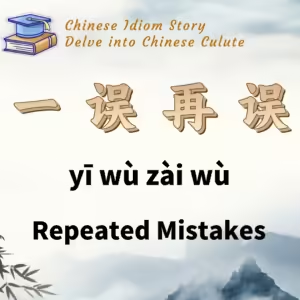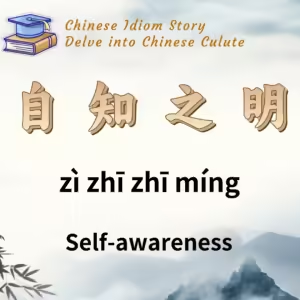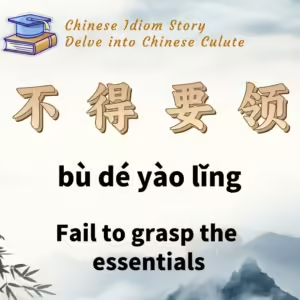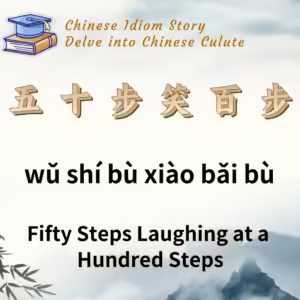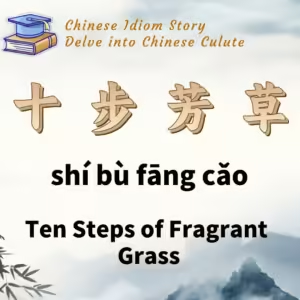
Chinese Idiom: 十步芳草 (Shi Bu Fang Cao)
English Translation: Ten Steps of Fragrant Grass
pīn yīn: shí bù fāng cǎo
Idiom Meaning: This idiom metaphorically describes a situation where talented individuals and virtuous people are present everywhere, all the time.
Historical Source: Sayings of the Forest (说苑·谈丛) and also mentioned in Qianfu Lun (潜夫论·实质).
Idiom Story: The idiom “十步芳草” (shí bù fāng cǎo) originates from a story recorded in The Essentials of the Zhenguan Era (贞观政要). The story features Emperor Taizong of the Tang Dynasty, Li Shimin, who was known for his broad-mindedness and emphasis on selecting and appointing talented individuals.
One day, Li Shimin had a conversation with his right chancellor, Feng Deyi, about governance and talent selection. He expressed his frustration with Feng Deyi for not having recommended any talented individuals despite the importance of having capable people to help govern the country effectively.
Feng Deyi replied that, although he had made efforts, he had not yet discovered any true talent. This response displeased Li Shimin, who then rebuked him, saying: “Have you considered that wise rulers in history have always used people according to their strengths, just as one would use the right tool for the right job? Talented individuals are present in every era and place, not borrowed from other dynasties. For example, the Shang King Wu Ding promoted a talented slave to minister and managed the country well, while Zhou Wu Wang appointed the wise and courageous Lü Shang (Jiang Ziya) as his grand mentor, leading to the rise of the Zhou dynasty and the fall of the Shang. Therefore, there are always talented people available in every age and place; the key is to be able to recognize them.”
Feng Deyi felt deeply ashamed after hearing Li Shimin’s words. Based on this story, the idiom “十步芳草” evolved to convey the idea that talent is always present if one knows where to look.


